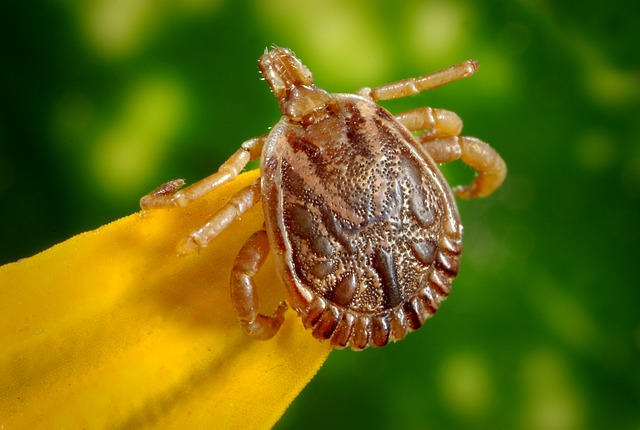Fall season is upon us, which means we dog owners don’t have to worry about ticks anymore… right?
Wrong.
How Ticks Became a Problem in Massachusetts
Contrary to popular belief, ticks are hardy creatures that won’t go away just because it’s getting a little bit colder during the night in Massachusetts. Ticks have become more widespread throughout the New England area due to reforestation. As state and local governments make moves to return land to a “forever wild” state, those new patches of green will first enter a weed, low grass and shrub stage — and these low-lying plants happen to be ideal grazing for deer. With the deer come the ticks (their main source of food).
Why Ticks Are a Problem for Dogs
To ticks, a meal is a meal whether it be from a deer or a dog, or even a human. As these green spaces continue to pop up around the state there suddenly becomes a large demand for hiking and nature trails; and these trails are oftentimes pet friendly. The Fall season is one of the most beautiful times in New England, but it’s important to be mindful that ticks are still active during September and October. In fact, many species of ticks will survive as long as the weather doesn’t dip below 45 degrees. One also can’t guarantee that the first frost of the season will kill adult ticks.
How To Prepare
Lyme disease is a real threat to both you and your dog. If caught early, there shouldn’t be any lasting side-effects. However, it’s better to be prepared.
- Be sure that you are wearing long pants or at least mid-calf wool hiking socks.
- We also recommend heading to Canine College for dog grooming service to cut your dog’s hair. Shorter hair makes it easier to find any ticks embedded in the fur.
- Try to keep your dog on a leash and stay on the beaten path.
- Once you’re back at home, thoroughly check yourself over for ticks and brush your dog’s fur with a metal-bristled brush or comb through the hair with your fingers searching for any lumps. We recommend that you do this shake-down outside on a patio or driveway.
If you notice a tick on your dog or on you, please contact your vet and physician as soon as possible! At Canine College, we want to ensure both you and your pet are safe this Fall season.


